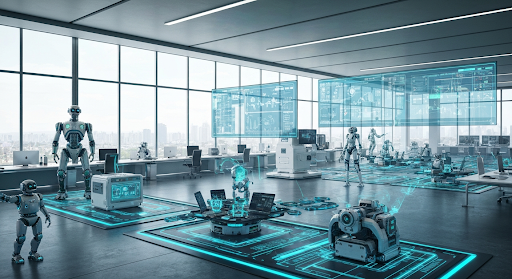IoT Devices: Applications and Platforms
IoT Devices: Applications and Platforms
The IoT devices have come into our lives in an overwhelming way. It is rare today to find an object that does not allow you to connect to the Internet. They come to make it easier life if it fits the user, allowing control and management of remotely and in real-time from virtually any object.
Definition of Internet of Things
Before entering fully with the devices, we must offer a more concrete concept about the Internet of Things. The Internet of Things (Spanish translation) responds to the interconnection of objects or devices to the Internet. So far everything is clear. Likewise, the objective pursued by this technological advance is, as we previously pointed out, both to improve the quality of life of users and to offer greater security.
According to the Statista portal, by this year 2020, it is expected that there will be about 31,000 million IoT devices in operation around the world.
What are IoT devices?
At this point, it must be said that at this time you do not have to throw a lot of imagination. It is now possible to control entire houses from your smartphone.
Another integration that we carried out was to control the temperature in your house or raise and lower the blinds. This connection of IoT devices turned out to be a perfect combination of efficiency, connectivity, and new technologies with areas as every day as security, savings, or entertainment.
You can also think of more specific use cases. Let’s imagine that the refrigerator alerts you if it has lost temperature, if we are short of any product, or if something is failing in its system. There are, of course, in this field millions of possible scenarios that we have yet to discover.
IoT Applications
Smart City: In this case, the devices and sensors installed throughout the city will make it possible to offer data and information as diverse and useful for the citizen or the city government as traffic management, park maintenance or lighting, noise levels, pollution, or crime, among others.
Industrial IoT (IIoT): The IoT in this sense also provides a global and unified vision of companies and/or businesses. Some of them are forecasting failures through data analytics, managing assets in the warehouse, or traceability concerning an order carried out by a customer.
The applications of the Internet of Things refers to the following fields:
Smart Port: Smart and connected ports have also seen the benefits of the IoT and joined its initiatives. The integration between city and port is being developed to provide added value and improve the efficiency of logistics processes.
Smart Home: Finally, as we have previously added, Smart Homes or smart homes are offering unique experiences within our own homes. All thanks to the connection of IoT devices.
FIWOO, the IoT platform to connect your devices.
All this information collected through sensors or devices must be represented simply on a platform. FIWOO is the Open Source platform that we developed together with Emergya and that offers a simple user interface, which allows the connection of your data, applications, devices, sensors, and all types of hardware, in a single environment.
One of the great advantages in terms of data and devices that we have discussed today in this post is that it allows you to connect, manage and interact with devices in real-time, regardless of the communication protocol they use.
Do you want us to organize a demo?
Do not hesitate to contact us if you have any questions or if, on the contrary, you want more detailed or technical information about the platform.
We await your comments if you liked this post!



